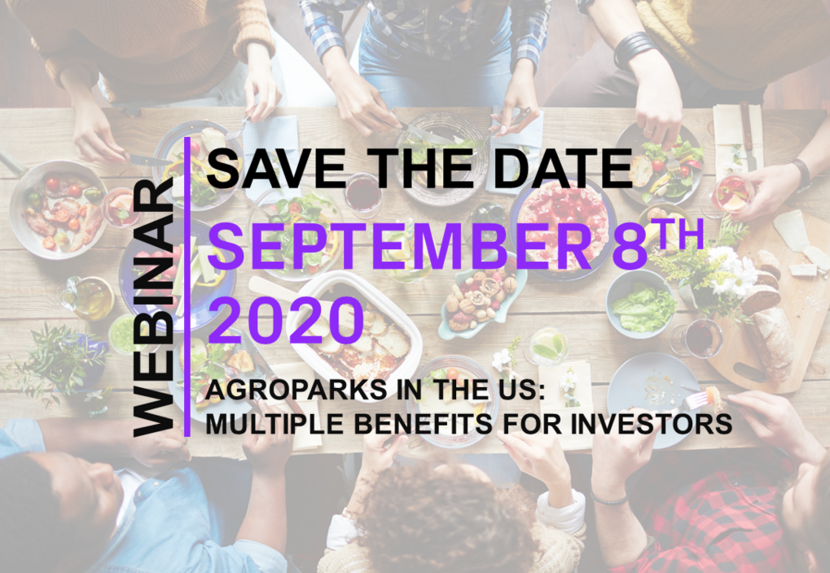Webinar on Agroparks in the United States with Dutch Greenhouse Delta and Rabobank on September 8th
Investing in an innovative approach of food production from the Netherlands: the example of an Agropark
The Covid-19 crisis has made us realize how fragile international food chains really are. The outbreak put a strain on different links in the supply chain, and brought to light its complexity and vulnerability. But even before the pandemic it had become clear that our current food system needed updating. The food system of the future must meet a number of essential conditions: healthy, fair, more local and regional, affordable, good quality, and with as little waste as possible. A transition is therefore much needed.
Making the transition to shorter food chains with closer connections between producers and consumers has many advantages: reducing the number of food miles and eliminating extra intermediaries so that farmers and growers can earn an honest living without increasing the cost to consumers.

The Concept of an Agropark
One of the possible solutions is a socalled Agropark. This is a concept where businesses in the agricultural and horticultural sectors and the (processing) industry are cleverly linked together at a single location. They can make use of each other's activities as well as their residual flows, combine transportation needs, and save on water and/or energy. An Agropark is also a sustainable solution that makes large-scale food production better and cheaper and less harmful to the environment. It not only offers a solution for the production of healthy food, but above all, it simultaneously offers solutions for infrastructure, and for the use of energy and water.
Ecosystem Approach
The Netherlands, which is relatively small, about the size of the state of Maryland, has a highly dense population of about 17 million people. Due to these land surface limitations it developed a highly integrated and technologically innovative ecosystem for the production of essential services as food. The Agropark is one of the examples how this system developed. Dutch companies have become world leaders in this “ecosystem thinking” that:
- connects urban and more rural areas,
- combines the logistical and infrastructural needs of producers and consumers,
- reacts and adapts swiftly to consumer demand and preferences,
- while taking into to account the highest standards of quality, water management and needs to address climate change.
This ecosystem approach offers huge opportunities for urban areas in the United States, contributing in building them into sustainable cities and connecting urban and regional areas. Investing in sustainable food production through Agroparks offers an excellent economic opportunity in a time where that is needed. It will benefit local companies and growers, reduce water and energy use, reduce waste and improve the health of local communities. To learn about the innovative ecosystem of food production in the Netherlands and in particular the concept of Agroparks, how they are established and how it benefits local business and communities.
Registration Information
This webinar is organized by the Agricultural Office at the Netherlands Embassy in Washington DC, Dutch Greenhouse Delta, and Rabobank.
It will take place on Tuesday, September 8 at 1:00 pm (EST) and 19:00 (CET).
The Webinar is free. To register please contact: info@dutchgreenhousedelta.com